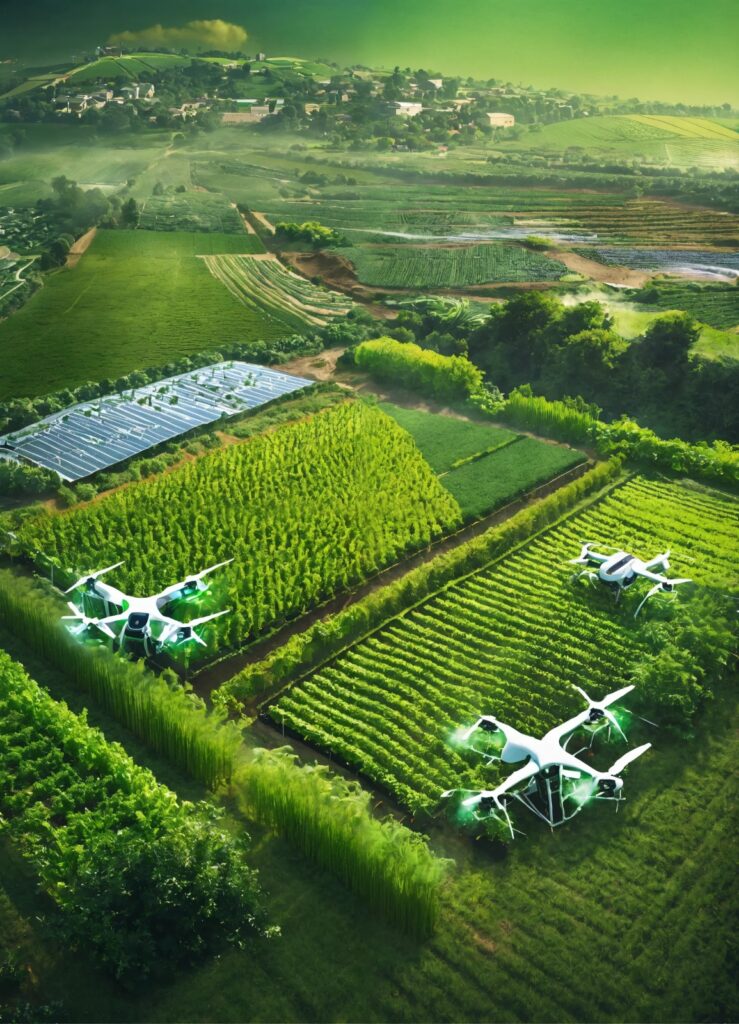
Unlocking the Future of Farming: How Smart Irrigation Systems Conserve Water and Boost Crop Yields
Revolutionizing Agriculture: How Smart Irrigation Systems are Saving Water and Boosting Yields.
Imagine a world where every drop of water used in farming is optimized to its fullest potential, ensuring maximum crop yield with minimal waste. This is not a distant dream but a reality brought to life by smart irrigation systems. In an era where water scarcity is a pressing global issue, these innovative technologies are transforming agriculture, helping farmers conserve water while significantly boosting their crop yields.
What are smart irrigation systems?
Smart irrigation systems utilize advanced technologies such as sensors, weather forecasts, and data analytics to precisely manage water usage in agricultural fields. Unlike traditional irrigation methods, which often lead to over-watering or under-watering, smart systems deliver the exact amount of water needed at the right time, ensuring that crops receive optimal hydration.
Key Components of Smart Irrigation Systems
1. Soil Moisture Sensors
These sensors are placed in the soil to monitor moisture levels in real-time. They provide data on how much water the soil retains, helping farmers determine the perfect watering schedule.
2. Weather-Based Controllers
These controllers use local weather data to adjust irrigation schedules. By considering factors such as rainfall, humidity, and temperature, they prevent unnecessary watering during rainy periods and ensure adequate hydration during dry spells.
3. Automated Valves and Sprinklers
These devices can be programmed to turn on and off based on data from sensors and controllers, allowing for precise water application.
4. Data Analytics and Monitoring Platforms
These platforms collect and analyze data from various sources, providing farmers with actionable insights into their irrigation practices. Farmers can access this information via smartphones or computers, making it easy to make informed decisions.
Benefits of Smart Irrigation Systems
1. Water Conservation
One of the most significant advantages of smart irrigation systems is their ability to conserve water. By delivering water only when and where it’s needed, these systems reduce water waste. This is crucial in regions facing water shortages, ensuring sustainable water use for future generations.
2. Improved Crop Yields
Proper irrigation is vital for healthy crop growth. Smart irrigation systems ensure that crops receive the right amount of water at the right time, promoting better growth and higher yields. This translates to increased productivity and profitability for farmers.
3. Cost Savings
While the initial investment in smart irrigation technology may be high, the long-term savings are substantial. Reduced water usage leads to lower utility bills, and the improved efficiency can decrease labor costs associated with manual irrigation.
4. Environmental Benefits
By minimizing water runoff and reducing the need for chemical fertilizers, smart irrigation systems contribute to environmental sustainability. They help prevent soil erosion and protect local water sources from contamination.
5. Adaptability to Climate Change
As climate change brings more extreme and unpredictable weather patterns, smart irrigation systems offer a way for farmers to adapt. By responding to real-time data and weather forecasts, these systems help ensure crops receive adequate water despite changing conditions.
Real-World Applications and Success Stories
Across the globe, farmers are reaping the benefits of smart irrigation systems. In California, a state notorious for its droughts, farmers have reported up to 50% reductions in water use after adopting smart irrigation technologies. Similarly, in India, smart irrigation has helped smallholder farmers increase their crop yields by 20–30%, providing a vital boost to food security and livelihoods.
The Future of Smart Irrigation
The future of smart irrigation looks promising, with ongoing advancements in technology making systems even more efficient and affordable. Integration with other AgriTech innovations, such as drones and AI, will further enhance precision farming practices, creating a more sustainable and productive agricultural sector.
Conclusion: Embracing Innovation for a Sustainable Future
Smart irrigation systems are revolutionizing the way we approach water management in agriculture. By embracing these technologies, farmers can conserve water, improve crop yields, and contribute to a more sustainable future. As water resources become increasingly strained, the adoption of smart irrigation systems will be critical in ensuring food security and environmental conservation.
Take the next step towards sustainable farming by exploring the latest in smart irrigation technology and see how it can transform your agricultural practices.
Visit our blog for more insights and resources on AgriTech innovations and their impact on modern farming.

Farming is an important aspect of life buh few are willing to venture in it
I’m happy as farming is also developing and improving with time, it also becomes easier
Am so happy for making farming in the world that is good idea to the world farming
Farming is important as livelihood depends on it